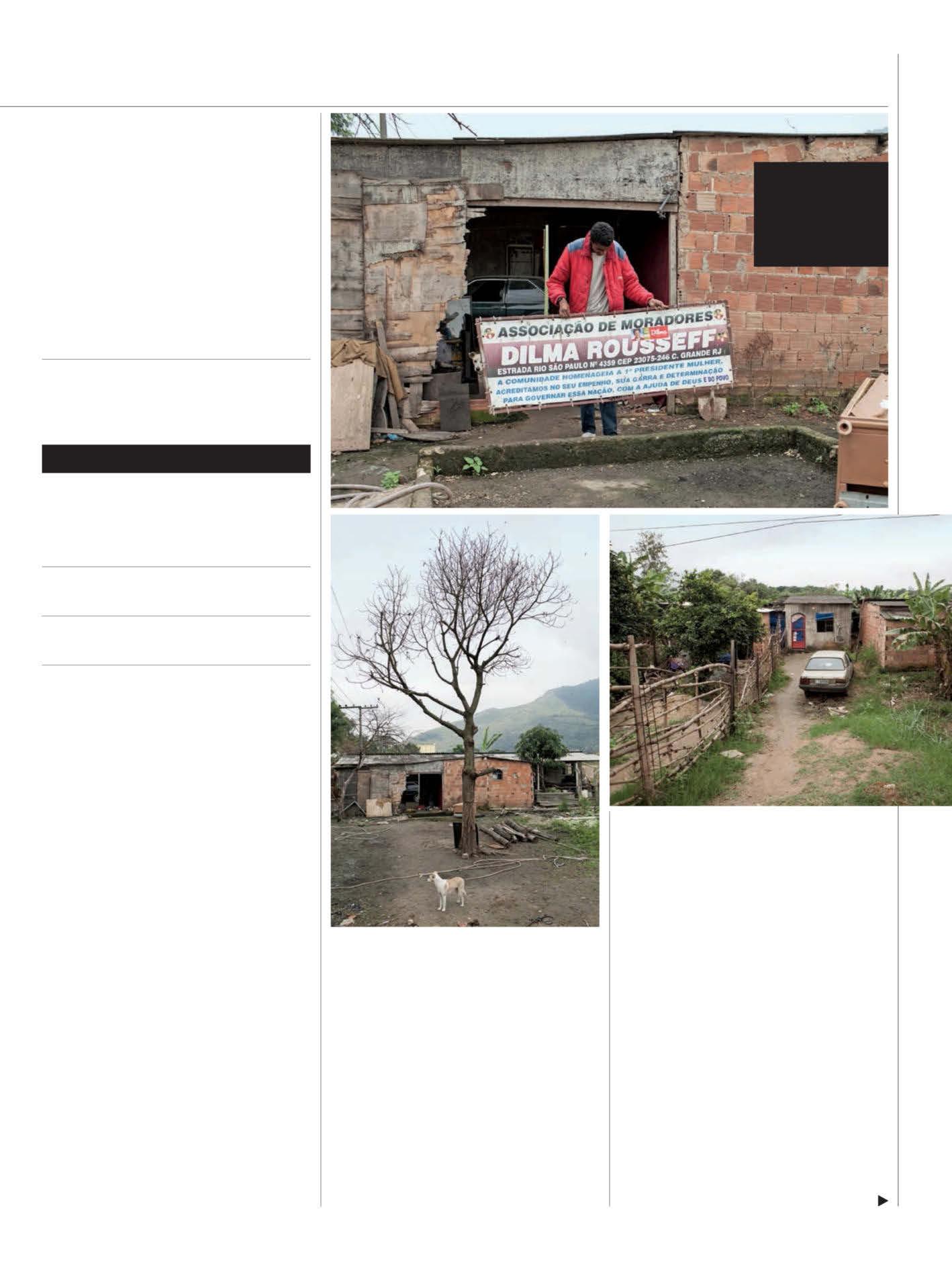
2 minute read
In a Brazil shantytown named for Dilma Rousseff, they’re over her
at just more than 2 percent, says the Lowy Institute’s Graham: “When you look at the investment picture, Japan is the giant. China cannot compare.”
Asians can benefit from the JapanChina rivalry. The strategy of the Association of Southeast Asian Nations is “Let’s hedge our bets and try to play off as many countries as possible,” says Chia Shuhui, an analyst in Singapore with BMI Research. “The more the merrier.” —Bruce Einhorn, with Suttinee Yuvejwattana, Ting Shi, and John Boudreau
Advertisement
The bottom line Japan is expanding aid to Asia before China’s new development bank embarks on Asian infrastructure programs.
In a favela renamed for Rousseff, a sign honoring her was taken down
Inflation The Favelas Sour on Dilma Rousseff
Brazil’s leader loses her base as prices soar
“Clothes, my God! Milk, Lord in heaven! Even eggs are expensive” Brazil’s Congress hasn’t moved to impeach embattled President Dilma Rousseff, but in a shantytown named for her, she’s already been ousted. As high inflation hits the poor harder than the rich, the leader of the Comunidade Dilma Rousseff last month tore down the placard honoring the president at the entrance to the favela in Rio de Janeiro. The members of the community had hoped the sign would attract the attention of the government and lead to the favela getting electricity and a sewage system. “We put up a sign after Dilma was elected, thinking it was going to be worthwhile, but nothing at all happened,” says Marilene Silva Souza, who sells cookies and bottled water on a nearby highway. Now, thanks to inflation, she and other residents “are eating scraps. If you want to eat a little better, you have to pay an absurd amount.”
After the start of Rousseff’s second term in January, her government boosted state-regulated prices for electricity as well as bus and subway fares in an effort to tame the budget deficit and maintain Brazil’s sovereign bond rating. The hikes, along with rising food costs, have propelled inflation to 8.9 percent, almost double the official target and up 2.5 percentage points since December. These changes cut the living standards of the poor, who form the base of Rousseff’s Workers’ Party and have turned against her. The presidential press office had no comment.
Some prices have risen much faster than the average rate of inflation. Electricity costs rose 42 percent in the first six months of the year. Urban bus fares went up 12.7 percent, beans as much as 24.5 percent, and eggs 14 percent, while the price of onions has gone up 148 percent. A severe drought damaged harvests and drove up the price of food.
Miranildes Coelho, a widowed mother of three, says every day is worse than the last. The monthly pension from her late husband, equivalent to the 788-real ($251) minimum monthly salary, can’t properly feed and clothe her kids, she says. The eldest two understand when she can’t afford milk, unlike her 4-year-old daughter. “Beef, rice, beans. Clothes, my God! Milk, Lord in heaven! Even eggs are expensive,” Coelho says. “We have to hold on with that little salary.” Inflation will be rising twice as fast as targeted by yearend, say economists surveyed by the central bank.
In the Dilma Rousseff favela, the placard was torn down on June 26, the day that the political weekly Veja published a report about alleged illegal donations to the president’s 2014 reelection campaign, sparking renewed calls for her impeachment. “I took the sign down with anger, with sadness, with










